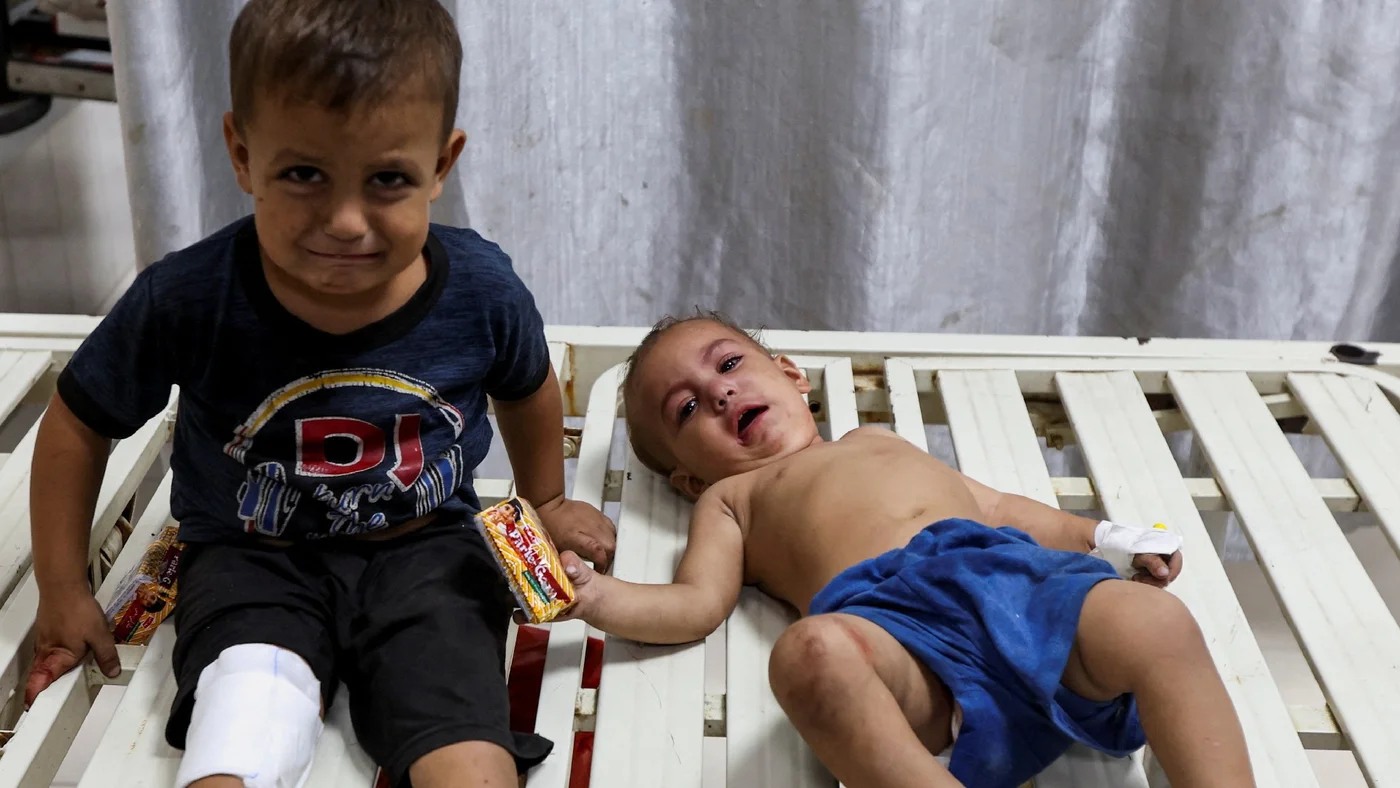
Israel continues to block medical supplies, equipment and assistive devices classified as “dual-use” items, according to reports from Gaza health professionals
Aid groups have warned that the medical situation in Gaza remains unchanged as Israeli restrictions continue to prevent the entry of almost all medical supplies and equipment amid a fragile ceasefire.
Lena Dajani, a mutual aid volunteer who coordinates medical assistance in Gaza, reported that “almost every doctor I spoke to said that nothing has changed in the health sector” since the ceasefire came into force on October 10.
While healthcare workers are no longer inundated by waves of bombing and shooting victims at aid distribution sites, they continue to struggle with a lack of basic medical supplies and equipment.
The World Health Organization said only 10% of requested medical supplies have entered Gaza since the ceasefire came into effect.
“Sepsis is a big problem; there are not many disinfectants available. Hospitals are breeding grounds for viruses and bacteria,” Dajani told Middle East Eye.
However, she emphasized that demand is not limited to medical supplies and equipment. Overcrowding persists, with patients forced to sleep on the floor and moved into makeshift tents.
“We are talking about patients who in any other country would be in the ICU. There were patients who had just come out of a coma after shrapnel injuries to the vertebrae and were sleeping on the floor.”
One of the cases she handled involved a child named Saab, who was evacuated from northern Gaza amid Israel’s prolonged military assault and had lost half of his skull.
“He was sleeping on the floor and they told him he had to leave,” Dajani said.
“There is no medical support, there are no beds available, there is no medical equipment or delegations that can even let the doctors breathe for a moment.”
Medicines for genetic diseases are also desperately needed. Dajani said many children have developed seizures as a result of the trauma of two years of war, but Keppra syrup – used to treat epilepsy – is not available.
“Many children developed seizures due to the trauma,” Dajani said. “Even though they were predisposed to having these seizures due to their conditions, they were triggered by certain factors, such as the bombs going off.”
A lack of infrastructure and electricity also means that medicines that require refrigeration — such as insulin, used to treat diabetes — cannot be stored.
‘Dual use’
Bahaa Zaqout, director of external relations at PARC, a Palestinian NGO that monitors aid inflows, said almost no medical equipment or medicines have entered the range since the ceasefire was imposed.
Items considered “dual use,” which include most medical equipment and materials needed to build shelters, are prohibited from entering the territory.
According to Zaqout, before October 2023, Israeli authorities designated around 1,400 items as “dual-use.”
However, since Israel began its genocide in Gaza, the list has expanded to include medicines and even children’s clothing. Zaqout estimates that about 4,000 items are on the list, although official numbers are not available.
He added that the vast majority of trucks arriving in Gaza are commercial, with aid trucks accounting for around 15% of all deliveries into the territory since the ceasefire was implemented.
Only 90 trucks enter Gaza daily, a fraction of the rate promised in the ceasefire agreement.
He said commercial deliveries tend to prioritize foods with low nutritional value because they require less coordination with Israeli authorities.
“You can’t even find paracetamol. Not even the simplest medicines are available in pharmacies and hospitals,” Zaqout told MEE.
He said almost all assistive devices such as wheelchairs, prosthetics and crutches are banned.
The number of people with disabilities in Gaza has increased amid Israel’s genocide.
A report by the Gaza City-based NGO Atfaluna Society for Deaf Children found that as of July 2025, 58,000 people were living with disabilities, while around 22,500 of those injured in Israel’s attack suffered life-changing injuries that required rehabilitation services.
The report also found that 83% of respondents with disabilities reported that one of their assistive devices was lost while commuting.
The organization further estimated that around 35,000 people were at risk of temporary or permanent hearing loss.
“This means there is a huge need for assistive devices in Gaza,” Atfaluna director Fadi Abed told MEE, adding that a lack of them means many people with disabilities cannot access other services, including much-needed mental health support.
“We have children with hearing problems who cannot attend psychosocial sessions or participate in learning activities,” Abed said.
The NGO used to run diagnostic clinics for children under five with hearing difficulties. However, diagnosis in this age group requires specialized equipment, which is currently unavailable in Gaza.
Blocked medical delegations
Medical delegations continue to struggle to enter Gaza.
British plastic surgeon Victoria Rose, who has worked with a medical charity supporting trauma treatment in Gaza since 2009, was part of a delegation scheduled to leave for Gaza on October 10 – the day the ceasefire was declared. She was informed on the 9th that they had been denied entry.
“They never warned us so far in advance. Cogat [Coordenação de Atividades Governamentais nos Territórios] usually notifies you the night before you enter. It was bizarre. We had been warned before we left,” Rose told MEE.
“When we discussed this with the Ministry of Foreign Affairs, the feeling was that they wanted to deny it before the ceasefire.
“There is an expectation that because of the ceasefire there will be an increase in humanitarian aid to Gaza. The aid covers health workers, so if they wanted to stop people from coming in, they would need to stop them before the ceasefire.”
Rose explained that since October 2023, healthcare workers have been limited to just five seats per month on convoys entering Gaza. The next train is already full, so she and her team await the announcement of additional seats – something Israel committed to doing after the ceasefire.
Israeli authorities repeatedly denied entry to medical delegations, and Rose unsuccessfully attempted to enter Gaza five times.
“It appears they rarely turn down vacancies to people whose job titles are ‘project coordinator’, ‘logistics manager’, ‘health and safety officer’, whilst anyone with a medical qualification in the role appears to be under much more scrutiny,” Rose said.
A team that went to Gaza in September reported that medical needs had not changed.
“They need resources for orthopedic and plastic surgery; there are very few doctors on staff. The team is very thin,” Rose said, noting that 17,000 Palestinian healthcare workers have been killed since October 2023, with 95 still detained by Israel.
Originally published by Middle East Eye on 10/25/2025
By Catarina Hearst
Source: https://www.ocafezinho.com/2025/10/27/nada-mudou-quase-nenhuma-ajuda-medica-esta-chegando-a-faixa-de-gaza/

